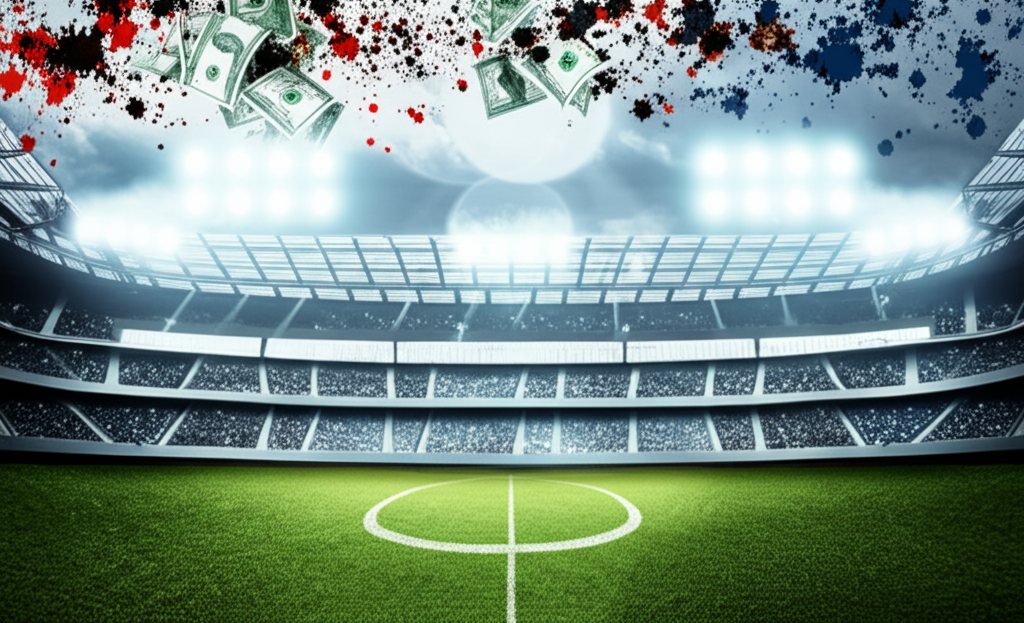The UEFA Champions League is a goldmine, but is it creating a financial divide in German football? Bayern Munich’s massive earnings dwarf those of other Bundesliga clubs, raising concerns about fair competition and the future of the league.
Key Takeaways
- Bayern Munich earned nearly €900 million from the Champions League in the last 10 years.
- DFL revenue distribution is less unequal compared to UEFA money.
- The Netherlands is experimenting with redistributing European competition earnings.
- UEFA’s Financial Fair Play is evolving to focus on cost control.
- Debate continues on implementing a salary cap in European football.
The Champions League Gold Rush
UEFA’s financial report for 2023/24 reveals staggering earnings for Bundesliga clubs in European competitions over the past decade. Bayern Munich leads the pack with a whopping €900 million between the 2014/15 and 2023/24 seasons. Borussia Dortmund follows with around €600 million, while RB Leipzig and Bayer Leverkusen each earned over €300 million.
Check out these numbers:
| Club | Earnings (€) (2014-2024) |
|---|---|
| Bayern Munich | 883,413,000 |
| Borussia Dortmund | 599,729,654 |
| RB Leipzig | 350,637,656 |
| Bayer Leverkusen | 300,500,672 |
| Eintracht Frankfurt | 145,342,651 |
And it’s not slowing down. For the 2024/25 season, projections already show Bayern and Dortmund reaching the €100 million mark, with potential for even more based on Champions League performance. UEFA anticipates its revenue will jump from €3.5 billion to €4.4 billion annually due to the new European Cup format, with most of that going to the clubs.
DFL Money: A Drop in the Bucket?
The German Football League (DFL) often faces criticism for unequal revenue distribution in the Bundesliga, supposedly creating an unfair advantage for Bayern. However, compared to the UEFA riches, the DFL’s impact on financial disparity is relatively smaller. While Bayern receives significantly more than promoted clubs like St. Pauli and Holstein Kiel, the UEFA payouts create a much wider gap.
Here’s a comparison of DFL distributions for the 2024/25 season:
| Club | National (€) | International (€) | Total (€) |
|---|---|---|---|
| Bayern Munich | 70,582,951 | 26,908,853 | 97,491,804 |
| Borussia Dortmund | 68,341,641 | 19,276,682 | 87,618,323 |
| Bayer Leverkusen | 64,785,856 | 21,471,476 | 86,257,332 |
The Club World Cup Wildcard
Coming soon: FIFA’s revamped Club World Cup! This competition could see European clubs pocket over $125 million in just four weeks. A juicy payday, sure, but it adds fuel to the fire of financial imbalance.
Dutch Courage: A Possible Solution?
While Bayern’s dominance is briefly challenged by Leverkusen, the question is: will Germany redistribute UEFA money for greater equality? The Netherlands is testing an idea where Champions League, Europa League, and Conference League participants donate 5% (3.75% from the knockout stage) of their earnings to the league. The league distributes this money to other clubs for structural improvements. Clever, right?
UEFA is making minor tweaks to its European Cup revenue distribution for the 2024/25 season. Will these small adjustments change the balance of power in national leagues? Unlikely.
Focusing on Spending, Not Just Earning
A small group of elite clubs is pulling away from the pack, fueled by UEFA money. These top Champions League teams also excel at generating transfer revenue, social media reach, sponsorships, and merchandise sales. Regulating these diverse income streams is tough.
Instead of focusing solely on income, several associations are scrutinizing club spending. UEFA’s Financial Fair Play serves as a blueprint, aiming to prevent cost inflation and ensure fair competition. A proposed limit restricts squad investments to 70% of income. Spain employs a similar strategy.
The Salary Cap Debate
The DFL wants a hard salary cap in Europe. DFL CEO Marc Lenz suggests a fixed limit, like €500 million per season, for each club. This would counteract the influence of Middle Eastern sovereign wealth funds and US hedge funds. However, UEFA President Aleksander Ceferin remains hesitant, citing potential legal issues and club resistance.





